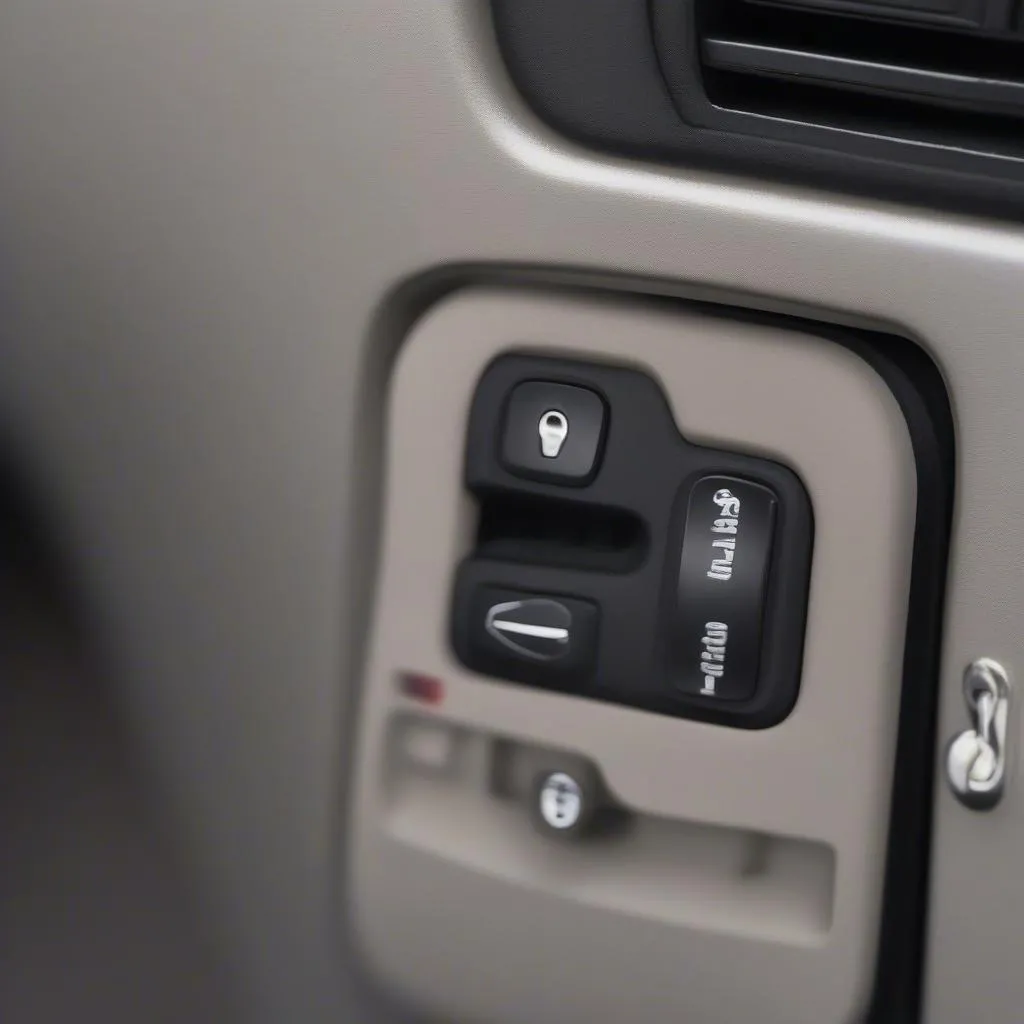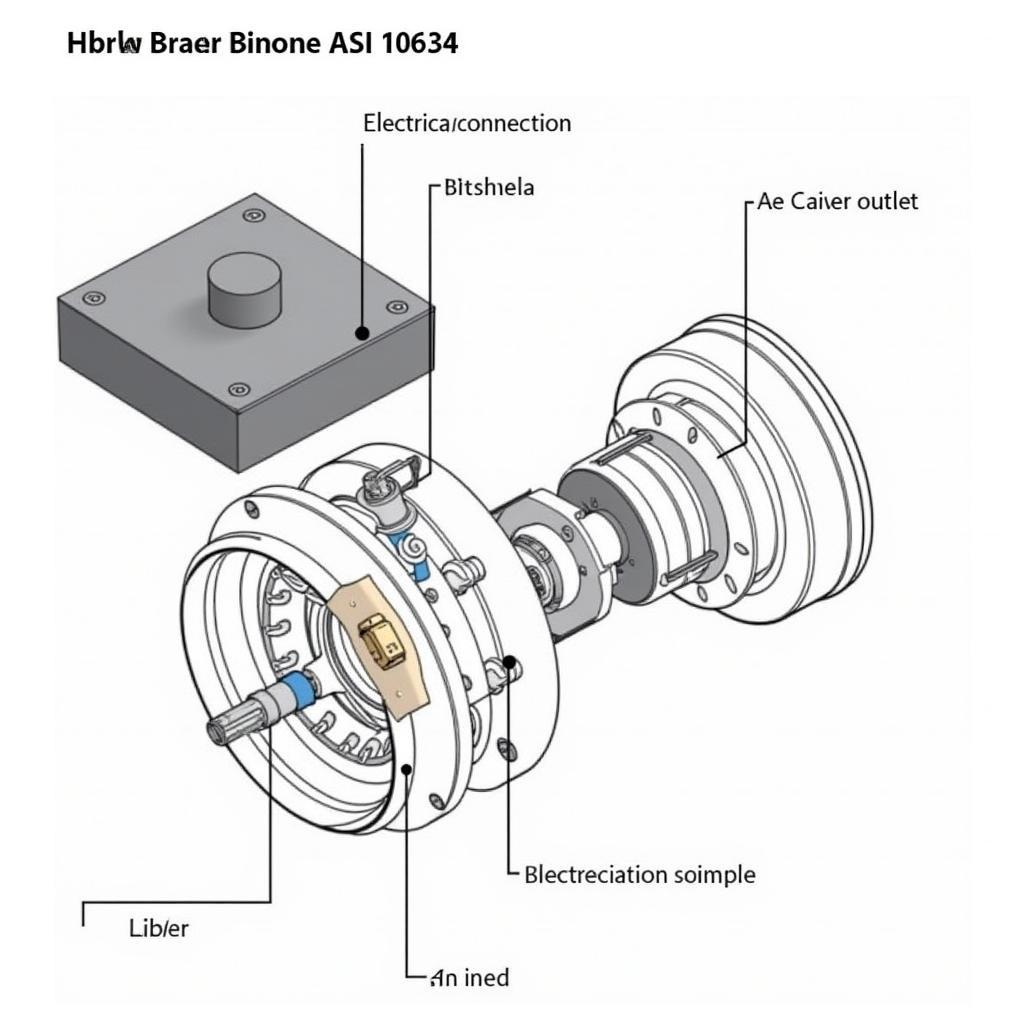The brake system warning light on your Toyota Corolla can be a source of anxiety, but understanding its meaning and potential causes can empower you to address the issue effectively. This article provides a comprehensive guide to troubleshooting and resolving brake system warning light problems in Toyota Corollas.
If your brake system warning light illuminates while driving, pull over immediately when safe to do so. Driving with compromised brakes can be extremely dangerous. Check your brake fluid level. This is the most common cause of a lit brake warning light.
Understanding the Brake System Warning Light
The brake system warning light is a crucial safety feature designed to alert you to potential problems within your Toyota Corolla’s braking system. It can indicate various issues, from low brake fluid to more serious problems like a malfunctioning ABS system. Ignoring this light could lead to brake failure, putting you and others at risk. If you are unsure about anything related to your brakes, consult a qualified mechanic immediately. For specific models, you can find more information on resources like brake system warning light 2009 toyota corolla.
Common Causes of the Brake System Warning Light
Several factors can trigger the brake system warning light in a Toyota Corolla. These include:
- Low Brake Fluid: This is the most frequent culprit. A leak in the brake lines or worn brake pads can deplete the fluid level, activating the warning light.
- Worn Brake Pads: As brake pads wear down, the brake fluid level drops. If the pads are excessively worn, the warning light will illuminate.
- Faulty Brake Sensor: A malfunctioning sensor can incorrectly trigger the warning light even if there’s no actual problem with the brakes.
- ABS Issues: If the Anti-lock Braking System (ABS) encounters a problem, it can activate the warning light. This might be due to a faulty sensor or a problem with the ABS module itself.
- Parking Brake Engaged: Sometimes, simply forgetting to disengage the parking brake can trigger the warning light.
Troubleshooting the Brake System Warning Light
Here’s a step-by-step guide to help you troubleshoot the brake system warning light in your Toyota Corolla:
- Check the Parking Brake: Ensure the parking brake is fully disengaged.
- Inspect Brake Fluid Level: Locate the brake fluid reservoir under the hood and check the fluid level. It should be between the minimum and maximum marks.
- Check for Leaks: Examine the brake lines and around the wheels for any signs of brake fluid leaks.
- Inspect Brake Pads: Visually inspect the brake pads through the wheel spokes. If they appear thin, they may need replacement.
- Consult a Mechanic: If you can’t identify the issue or are unsure about performing any repairs, take your Corolla to a qualified mechanic for a thorough inspection.
For issues related to older models, you can refer to resources such as toyota corolla 2008 brake system warning light or even 2003 corolla abs and brake warning lights on. These resources can offer specific insights into the potential problems associated with these particular model years.
“Regular brake system maintenance, including fluid flushes and pad replacements, is crucial for preventing warning light issues and ensuring optimal braking performance,” says automotive expert, David Miller, ASE Certified Master Technician.
Remote Diagnostics and Software Solutions
Modern technology allows for remote diagnostics and software updates, sometimes resolving brake system issues without a physical visit to a mechanic. These services can identify specific problems within the ABS system or other electronic components. Certain issues, particularly those related to software glitches, can be rectified through remote programming and software installations. This can be a time-saving and cost-effective solution in some cases. For instance, resources like corolla 2018 im brake warning proximity sensor can be immensely helpful.
“Remote diagnostics can be particularly helpful in identifying intermittent issues that might not be readily apparent during a physical inspection,” adds Sarah Chen, Lead Diagnostics Engineer at AutoTech Solutions.
Conclusion
The brake system warning light in your Toyota Corolla should never be ignored. Addressing the underlying problem promptly is essential for your safety. By understanding the potential causes and following the troubleshooting steps outlined in this article, you can take the necessary actions to ensure your Corolla’s braking system is functioning correctly. If you’re dealing with trailer brake issues on other vehicles, information like trailer brake system warning 2014 gmc sierra might be relevant. Remember, a properly functioning brake system is paramount for safe driving.
FAQ
-
What should I do if my brake system warning light comes on while driving? Pull over safely as soon as possible and check your brake fluid level. If it’s low, do not drive and seek professional assistance.
-
Can I drive my Toyota Corolla with the brake system warning light on? It’s highly discouraged. Driving with a lit brake warning light could be dangerous and lead to brake failure.
-
How often should I check my brake fluid level? It’s recommended to check your brake fluid level at least once a month.
-
How much does it cost to replace brake pads? The cost varies depending on the model year and type of brake pads used. Consult a mechanic for an accurate estimate.
-
What is ABS, and why is it important? ABS stands for Anti-lock Braking System. It prevents wheel lockup during hard braking, allowing you to maintain steering control.
-
Can a faulty brake sensor cause the warning light to come on? Yes, a malfunctioning sensor can trigger the warning light even if there’s no actual problem with the brakes.
-
How can remote diagnostics help with brake system issues? Remote diagnostics can identify specific problems within the electronic components of the braking system, including the ABS.


